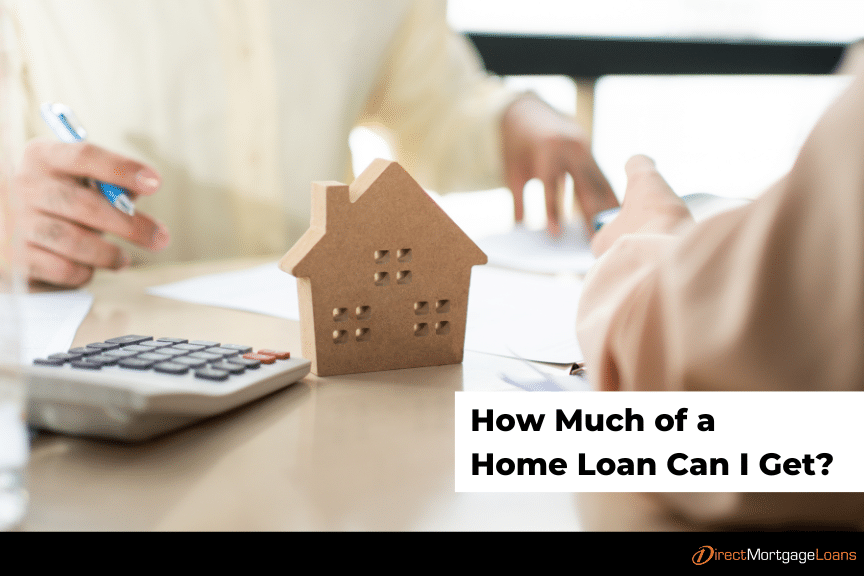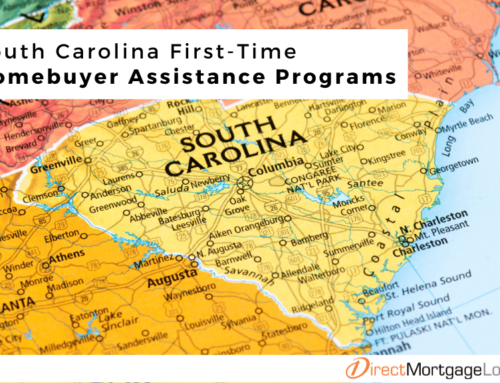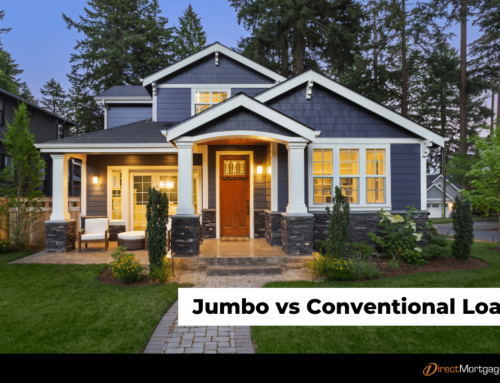How much can I borrow for a mortgage based on my income?
Your ability to obtain a loan for a new home purchase is based on several factors. Lenders typically make lending decisions based on three key ratios:
- Loan-to-value ratio (LTV), which represents the ratio of the loan amount to the value of the home. Lenders ideally want to see an 80% LTV, meaning a 20% down payment is preferred.
- Housing Ratio, which represents the percentage of your total income that goes towards housing expenses.
- Debt-to-Income Ratio, which represents your total debt payments, plus housing expenses as a percentage of your total income. Lenders will typically look at any of these ratios as constraints, meaning once any of these ratio limits is reached, the amount of the loan will be capped.
Determine how much you can borrow with our Home Affordability Calculator!
What determines how much of a home loan you get?
The amount of a home loan you can get depends on many factors. See below for more information.
Credit Consideration
Your credit score is a major determining factor when considering your loan eligibility. Before your lender can provide you with a home loan, they must ensure that you will repay the loan properly and that you have a positive history of repayment. Your credit score represents your ability to make payments on time.
Debt-to-Income Ratio
This ratio will be one of the first factors your lender will analyze to determine how much you qualify for. Your debt-to-income ratio is the percentage of your gross income this is to cover your mortgage and other debt payments.
Employment History
When it comes to loan amounts, your employment history is assessed by your lender to show consistency in your financial history. Typically, a lender wants to see a two-three-year employment history. There are some situations where there may be other methods to qualify.
Down Payment
The higher your down payment, the lower your mortgage loan amount will be, and the less you will pay in interest over time. The size of your down payment might also impact your loan eligibility. In most cases, you will need a minimum of at least 3 percent, and many loan types will require 5 percent, or more, down. Most lenders will also require that you pay Private Mortgage Insurance (PMI) if you put down less than 20 percent until your loan-to-value reaches 80 percent. It is a good idea to give yourself a cash cushion so that you will have money available for the unexpected when you purchase a home. Calculate how much you should put down on a house!
Loan Type and Term
The term of your mortgage is the length of time you must repay your mortgage, which is typically 15 or 30 years. Additionally, the type of home loan you choose also determines how much you qualify for. The main types of mortgage loans are:
- Conventional: Typically viewed as the 20% down mortgage solution, conventional loans come in all shapes and sizes.
- FHA: Governed by the Housing of Urban Development (HUD), an FHA loan offers flexible guidelines for borrowers with limited down payment funds and an imperfect credit history.
- VA: As a qualified veteran, active-duty member, or eligible spouse, you have earned VA housing benefits that include: no down payment, and no monthly mortgage insurance. The U.S. Department of Veterans Affairs has set eligibility requirements for a VA mortgage.
- USDA: Government-insured for purchasing within a designated rural area. Designed for low-to-moderate-income borrowers, a USDA loan offers flexible guidelines and no down payment.
What is the 28-36 rule?
The 28-36 rule is a common guideline to determine how much income should go toward your monthly mortgage payments. Housing expenses should not exceed 28% of your pre-taxed income, and debt payments should not exceed 36% of your pre-taxed income. This is also known as your debt-to-income ratio and is a key factor to determine if you qualify for a loan. The lower your ratio, the easier it is for you to pay your bills each month. Calculate your debt-to-income using our mortgage calculators!
What Makes Up Your Monthly Mortgage Payment
While mortgage lenders use lending ratios, such as the percentage of a borrower’s debt to their income, in deciding whether to approve a loan, a borrower’s household budget may determine how much they want to spend each month on housing. That monthly payment will determine how large a loan the borrower can expect to receive based on the term of the loan, down payment, and interest rate. To break it down, there are four components to a mortgage payment: principal, interest, taxes, and insurance.
Principal
The principal is the actual amount of the loan. It is commonly misunderstood that the percentage of the payment that goes to the principal increases over time. This is not true; therefore, you cannot just divide the principal by the number of payments to know how much is paid off. At first, you will not be paying much principal. If you choose to pay extra on your mortgage payment, then be sure to apply the amount directly to the principal.
Interest
This is another part of your loan. At first, you will pay more interest. Payments applied to the interest of your loan will decrease over the course of your loan. The amount of interest you pay is based on a lot of factors such as the length of the loan, loan amount, and credit score. The lower the interest rate, the better.
Property Taxes
Property taxes are usually used to fund local public services. Your lender will likely collect them as part of your payment and hold them in escrow so you are not hit with a huge tax bill at the end of the year.
Homeowner’s and Private Mortgage Insurance (PMI)
There are two kinds of insurance that may be added to your loan payment. The first is homeowner’s insurance. This makes sure the home is properly insured against any potential hazards. The second is private mortgage insurance. If your down payment is less than 20%, then PMI will be added to your loan payment.
How much income do you need to qualify for a $300,000 mortgage?
The annual income needed to afford a $300,000 house with a 30-year rate of 5% and $15,000 down is $77,087. The calculation for the scenario is for an individual with no expenses. Use our Loan Amount Calculator to input your personal expenses!
*Income needed is subject to change based on living expenses, taxes, and insurance.*
How Can I Start My Mortgage Application?
Once you have crunched the numbers and feel ready to start your homeownership journey, easily apply using our app. Here is a summary of the documents you will need for your pre-approval application:
- Federal Tax Returns: We’ll need all pages of your federal tax returns from the past two years.
- W2s and 1099s: The past two years of both documents are required.
- Consecutive Pay Stubs: We’ll need your most recent pay stubs for the past 30 days.
- Asset Statements: All pages of these statements from the past two months are necessary. This covers a wide range of statements such as your checkings, savings, stock, 401k, etc.
- Current Mortgage and Homeowners Insurance Statements: If you currently own a property, then we’ll require these statements.
- Driver’s License: We’ll need a copy of your driver’s license to show your identity. You can upload this securely in our mobile app.
For Self-Employed Applicants
If you are self-employed, then your income is analyzed a little differently.
- Business Tax Returns: All pages of your business tax returns from the past two years are analyzed as this is also part of your finances as a business owner.
For Retirement Income
Some additional items will need to be provided if you have retirement income.
- Social Security Award Letter: You will need to submit a copy of the current year’s social security award letter.
- 1099s for Social Security: Your past two years of 1099s for social security. For pension income, you will need your award letter showing the monthly amount and 1099s from the past two years.
Connect With A Loan Officer To Learn More
Eligibility and approval is subject to completion of an application and verification of home ownership, occupancy, title, income, employment, credit, home value, collateral and underwriting requirements. Direct Mortgage Loans, LLC NMLS ID# is 832799 (www.nmlsconsumeraccess.org). Our office is located at 11011 McCormick Rd Suite 400 Hunt Valley, MD 21031. Equal housing lender.






Leave A Comment
You must be logged in to post a comment.